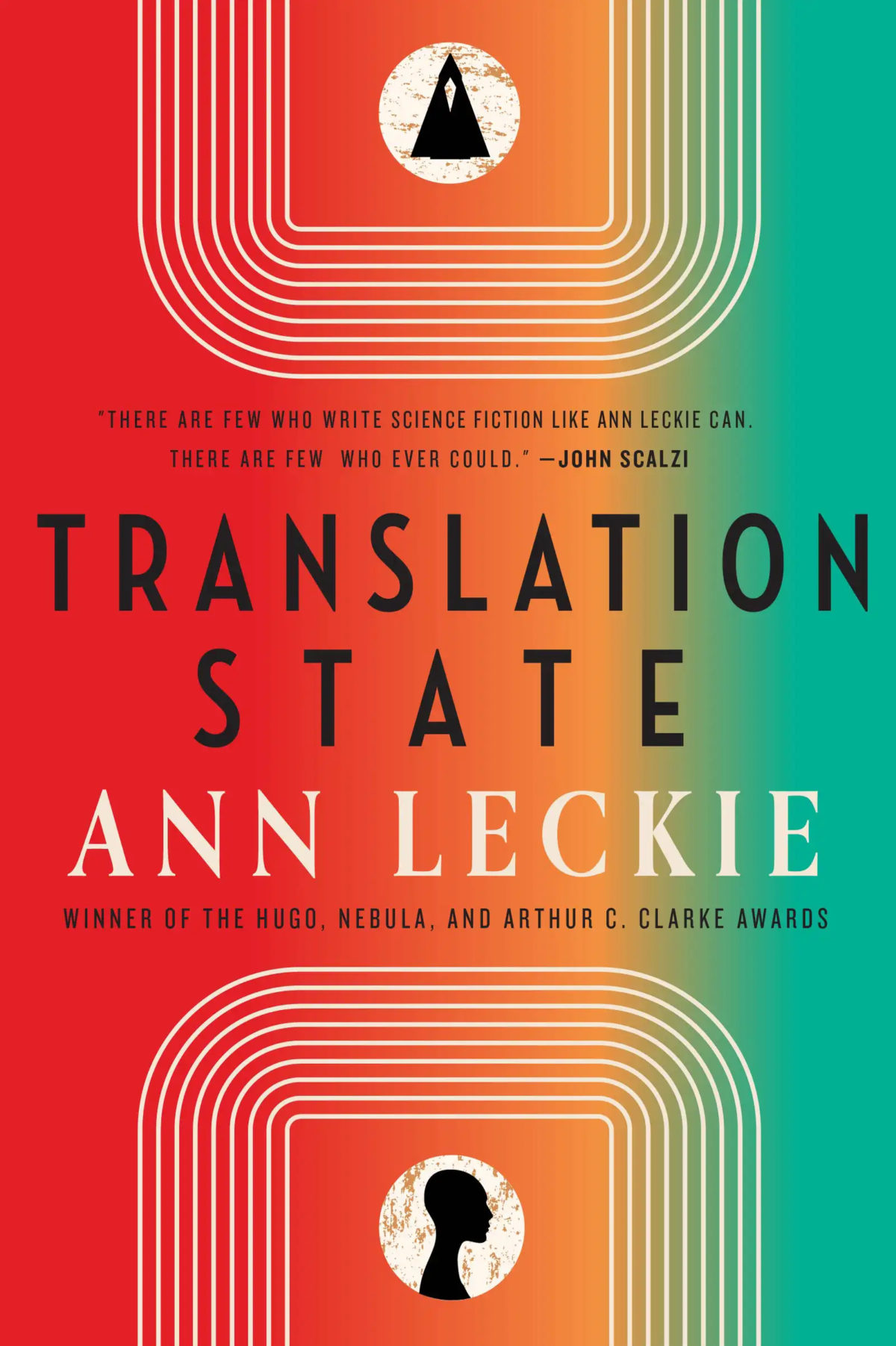Ann Leckie’s Translation State was the only book I finished in October. Good thing I read enough during my trip to the US to balance that out!
Translation State is…fine? It’s hard for me to be fair in my evaluation because I recognize that I read it in A Mood, and I also went in with incredibly high expectations because Ancillary Justice was one of the top tier Austin Feminist Sci-Fi Book Club picks not only of the year, but of all time.
In short: everyman Reet Hluid learns that he isn’t entirely human, but actually the offspring of a wayward member of a terrifying and vaguely cannibalistic alien race, the Presger (or rather, their test tube baby science experiment race, Presger Translators, humanoids cooked up to help the ineffable Presger interface with humans). This entirely accidental revelation of his ancestry rips Hluid from his otherwise unremarkable life to be matched with Qven, another Presger Translator who is on the outs with their society.
What do I mean with that nebulous word “matched”? I mean something akin to “set up with.” Presger Translators are casually cannibalistic, or at least sadistic—we learn from Qven that dismemberments and eviscerations are standard fare schoolyard games among Presger Translator children—but then when adulthood hits, this turns from cannibalism into a merging that no matter how much Qven insists isn’t “doing the sex” still reads as “sex,” where the two parties consume each other? physically merge with each other? and then become some kind of new entity split across two bodies that are now a kind of average of both of them.
Hluid and Qven bond over a cheesy space opera, only to get called up before a tribunal to discuss their legal status under the prevailing galactic treaty drawn up between the Presger and the other races within the galaxy (are they human or not?). Violence erupts and chaos ensues, and we learn a little bit more about what the Presger (or Presger Translators?) can do: muck around with spacetime. Hluid and Qven, after nearly an entire book of misunderstanding-through-an-abundance-of-caution, merge and become a more fully realized Presger Translator Adult in order to save the day. You can’t be mad about that being a spoiler, either, because what we’re reading is essentially an alien romance with neopronouns and political intrigue slapped on for good measure; the happily ever after is a given.
The fact that it’s a romance that snuck in through the back door to a more straightforward and high-concept space opera series like Ancillary Justice is maybe why I don’t like it. I don’t enjoy romance. I don’t watch a lot of TV, trashy or otherwise, so I don’t find it qUiRkY aNd sO rELaTabLe when sci-fi characters do. (Love you, Murderbot, but you’re also guilty of this sin.) And despite the neopronouns and the antagonizing, on both ends, about consent and BUT THEY PROBABLY DON’T WANT TO MATCH WITH ME ANYWAY, the relationship between Hluid and Qven still feels pretty normal and straight, and also not particularly believable. Whatever important conversations they have where they bare their souls to each other seem to mostly happen off-screen, while their on-screen (on-page?) courtship seems to consist exclusively of watching TV together.
The comparison didn’t occur to me while I was reading it, but in summarizing the book just now Translation State has pretty strong echoes of The Gods Themselves, at least in terms of Presger biology. Leckie, at least, has a better handle on gender than Asimov.
If you’re thirsty for more Imperial Raadch adjacent content, Translation State scratches that itch. But I wouldn’t hand it off to anyone as an introduction to the Imperial Raadch books or to Leckie generally. Save it for later.

